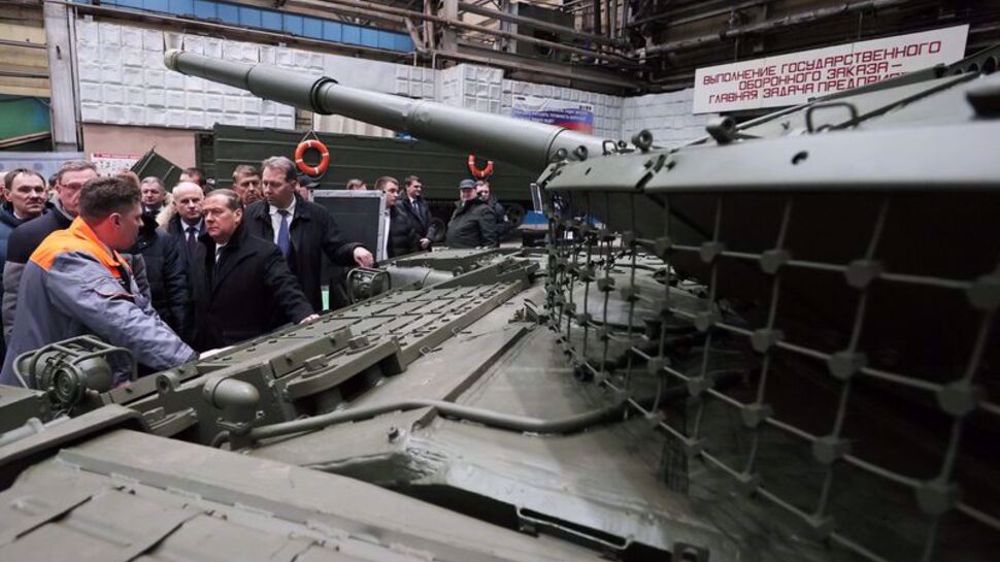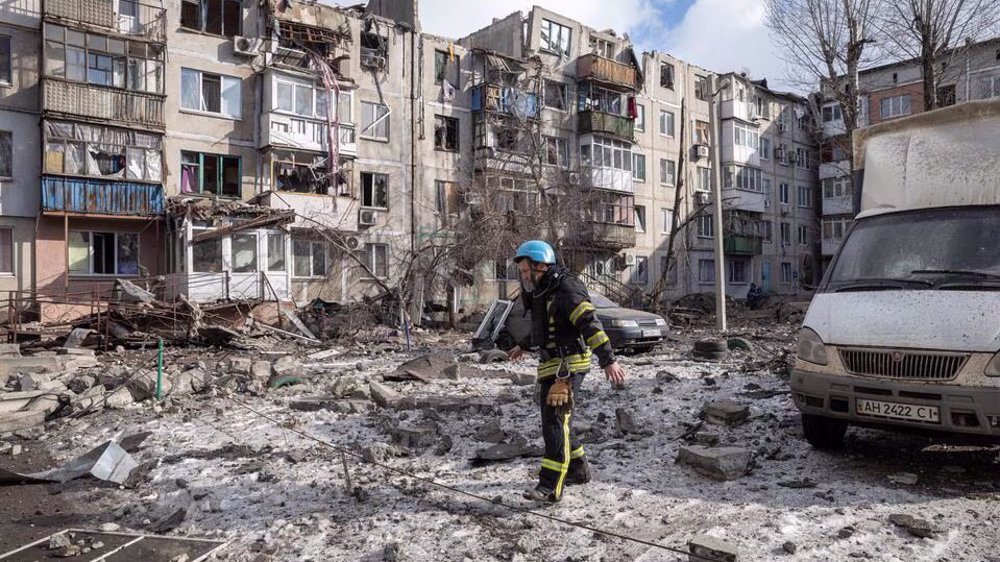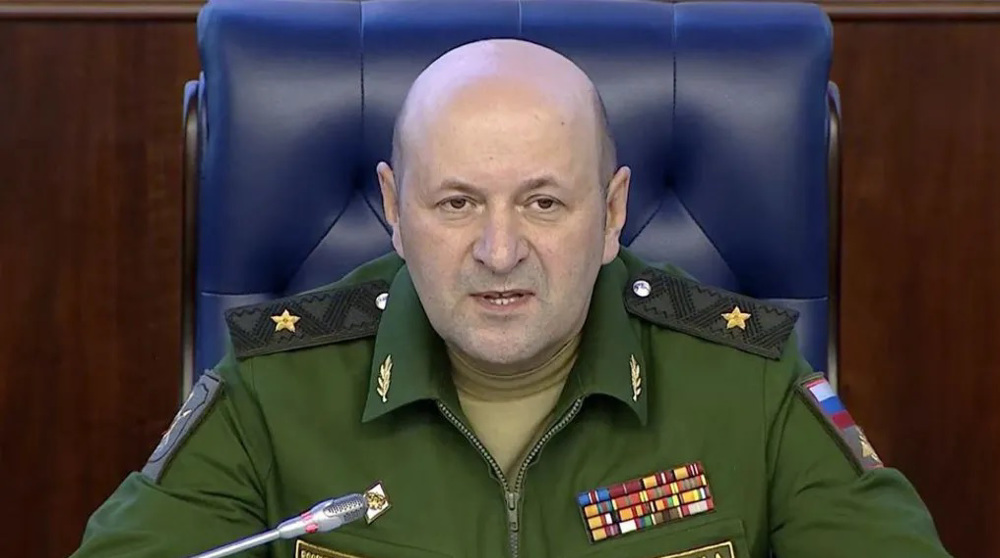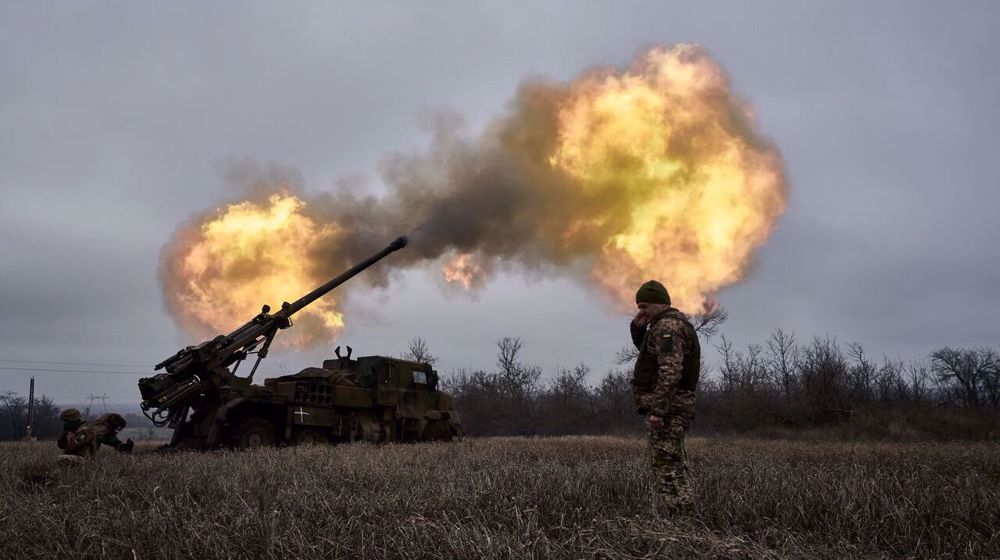Russia's defense factories work round the clock to meet demand: Medvedev
Former Russian president Dmitry Medvedev has brushed off an idea by the West that Moscow's forces in Ukraine were running out of missiles, reassuring that the country's factories are working round the clock to meet an exponential increase in defense orders.
In an article published on Saturday in the monthly magazine National Defense, Medvedev said some factories had increased military production "by tens of times."
“It was funny to hear the Kiev fantasists reasoning that 'missiles ran out' in Russia or 'production stopped'. The reality convinced them of the opposite - they still cannot get over the shock," he said.
Ukraine and its Western allies have claimed that Russia is running low on some types of missiles and that Western sanctions are hampering its ability to replenish its stocks of guided weapons that rely on imported microchips.
Medvedev, who was appointed in December as President Vladimir Putin's deputy on the Military-Industrial Commission, dismissed the idea, saying that Moscow is “not just expanding production, but also introducing the latest technologies, perfecting them literally 'on the march'."
He said that defense factories were "fully coping" with the increased demand from the state.
"Incidentally, we have also studied enemy weapons quite well, which were taken as trophies and dismantled to the last screw at our military construction bureaux," Medvedev added.
"We extracted a lot of useful things for ourselves - we turned the enemy's experience to our own advantage,” he added.
Late last year, Ukraine’s secretary of the National Security and Defense Council, Oleksiy Danilov, claimed that Russia has enough firepower for only three or four more missile barrages.
“We understand how much they’ve expended so far — we understand that they don’t have so many,” Danilov said in mid-December.
Ahead of the first anniversary of the Russian invasion of Ukraine, and with no immediate end to the war in sight, Russia has once again reassured that the only way to ensure a lasting peace with Ukraine was to push back the borders of hostile states as far as possible, even if that meant the frontiers of NATO member Poland.
Experts have warned that the conflict could drag on for years, increasing the possibility of a direct confrontation between Russia and NATO.
At least 19 Gazans killed by Israeli airstrikes since dawn: Medics
Leader: Iran has no proxy forces in West Asia
US fighter aircraft shot down ‘in friendly fire’ amid aggression on Yemen
Yemeni FM: Israel’s sponsors accountable for ongoing aggression on Sana’a
Eight Palestinians killed as Israel attacks Gaza school, hospitals
VIDEO | Rome, Milan host new protests in solidarity with Palestinians
Dec. 21: ‘Axis of Resistance’ operations against Israeli occupation
Spain jurists demand ties with Israel ties be cut













 This makes it easy to access the Press TV website
This makes it easy to access the Press TV website